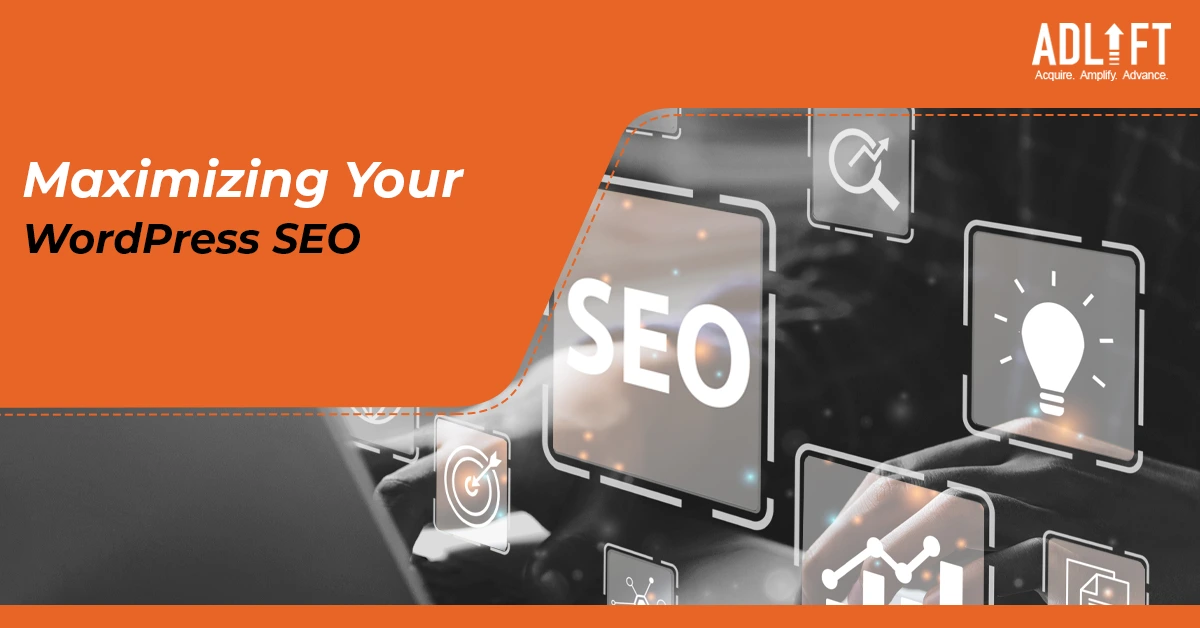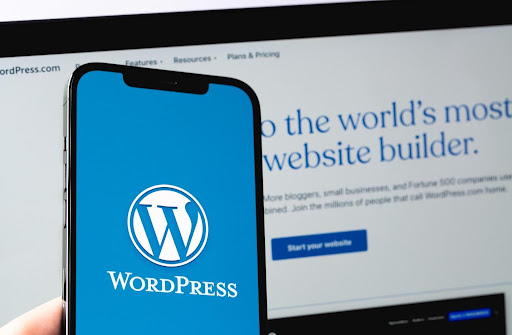Maximizing Your WordPress SEO Tips and Best Practices

As a website owner or content creator, you know how important it is to have your website rank high in search engine results pages. One of the most popular content management systems out there is WordPress, and luckily, there are plenty of ways to optimize your WordPress website for SEO.
In this article, we’ll go over some WordPress SEO tips and best practices to help you maximize your efforts and outrank your competition.
Choose a Quality Hosting Provider
Your website’s hosting provider plays a vital role in your website’s performance, including its search engine rankings. When choosing a hosting provider for your WordPress website, make sure to choose one that’s reliable, fast, and secure.
Additionally, make sure that your hosting provider has a good reputation and provides excellent customer support. Poor hosting can lead to slow loading times, security vulnerabilities, and even downtime, all of which can negatively impact your SEO efforts.
Choose a Mobile-Responsive Theme
In today’s mobile-first world, it’s crucial that your website is mobile-responsive. Google has even made mobile-friendliness a ranking factor in its search algorithm. Choosing a mobile-responsive theme for your WordPress website is essential to maximizing your SEO efforts.
Make sure that your website’s design is optimized for different screen sizes, including smartphones and tablets. Responsive design ensures that your website looks great and functions well, regardless of the device being used to access it.
Use SEO-Friendly Permalinks
Permalinks are the permanent URLs that point to your website’s individual pages and posts. It’s essential to use SEO-friendly permalinks on your WordPress website to make it easier for search engines to crawl and index your pages.
By default, WordPress uses a permalink structure that includes post IDs and dates. However, this structure is not very SEO-friendly. Instead, choose a structure that includes your post’s title and relevant keywords.
Optimize Your Page Titles and Meta Descriptions
Page titles and meta descriptions are two critical elements of on-page SEO. They tell both users and search engines what your page is about. It’s essential to include relevant keywords in your page titles and meta descriptions to help search engines understand the content of your page.
Additionally, make sure that your page titles and meta descriptions are compelling and informative. A well-written page title and meta description can improve your click-through rate, which can indirectly improve your search engine rankings.
Use Relevant and High-Quality Content
Content is king in the world of SEO. Creating relevant and high-quality content is essential to improving your search engine rankings. When creating content for your WordPress website, make sure that it’s relevant to your target audience and includes relevant keywords.
Additionally, make sure that your content is well-written, informative, and engaging. High-quality content can help improve your website’s user engagement metrics, which can also indirectly improve your search engine rankings.
Use Internal and External Linking
Internal and external linking are two important factors in on-page SEO. Internal linking involves linking to other pages and posts on your website, while external linking involves linking to relevant pages and posts on other websites.
Internal linking can help search engines understand the structure of your website and how your pages and posts are related to each other. External linking can help improve your website’s authority and credibility, which can indirectly improve your search engine rankings.
Optimize Your Images
Images are an essential element of web design, but they can also slow down your website’s loading times if they’re not optimized correctly. It’s essential to optimize your images for the web by compressing them and using descriptive file names and alt tags.
Additionally, make sure that your images are relevant to your content and include relevant keywords in their file names and alt tags. This can help search engines understand the content of your pages and posts and improve your SEO efforts.
Use a Caching Plugin
Caching plugins are essential for improving your website’s speed and performance, which can indirectly improve your search engine rankings. These plugins store a version of your website’s pages and posts, making it faster for users to access them.
When choosing a caching plugin for your WordPress website, make sure to choose one that’s reliable and well-supported. Additionally, make sure to configure the plugin correctly to ensure that it’s optimizing your website’s performance.
Monitor Your Website’s Analytics
Monitoring your website’s analytics is crucial to understanding your website’s performance and identifying areas for improvement. Google Analytics is a powerful tool that can help you track your website’s traffic, user engagement metrics, and other important data.
By monitoring your website’s analytics, you can identify pages and posts that are performing well and those that need improvement. This information can help you optimize your website’s SEO efforts and improve your search engine rankings.
Stay Up to Date with SEO Best Practices
SEO is an ever-evolving field, and it’s essential to stay up to date with the latest best practices and trends. By staying up to date, you can ensure that your WordPress website is optimized for SEO and performing well in search engine rankings.
Some ways to stay up to date with SEO best practices include reading industry blogs and publications, attending conferences and webinars, and networking with other SEO professionals.
Optimizing your WordPress website for SEO is essential to improving your search engine rankings and driving more traffic to your website. By following these tips and best practices, you can maximize your SEO efforts and outrank your competition. Remember to choose a quality hosting provider, choose a mobile-responsive theme, use SEO-friendly permalinks, optimize your page titles and meta descriptions, use relevant and high-quality content, use internal and external linking, optimize your images, use a caching plugin, monitor your website’s analytics, and stay up to date with SEO best practices. With these WordPress SEO tips, you can achieve higher search engine rankings and drive more traffic to your website.
FAQs
Ans: To optimize your WordPress website for SEO, you need to keep a few points in mind:
-
- Always opt for a reliable hosting provider offering fast loading time and solid security measures. This helps avoid the problem of a slow or unreliable website that ultimately impacts your website’s SEO.
- Install SEO plugins like Yoast SEO or All in One SEO Pack. These plugins provide helpful features and guidance for optimizing your site’s SEO, including XML sitemaps, meta tags, keyword analysis, and more.
- Your WordPress site’s content is also a crucial factor that affects your SEO. Make sure that your site’s content is E-E-A-T friendly and informational.
Ans:
Here are some of the best practices you can follow for keyword research in WordPress SEO:
- The first step is to understand your target audience. Knowing your TG needs can help you determine keywords closely related to their searches.
- The next step would be to brainstorm a list of seed keywords relevant to your website’s niche and topics.
- During the keyword research process, you should use available free tools at your disposal. Some examples are Google keyword planner, Moz keyword explorer, SEMrush and Ahrefs.
Ans. Yes, there are many plugins and tools for WordPress SEO, some popular ones are Yoast SEO, All in one SEO pack, SEMrush, Google keyword planner etc. You can also check out some free tools and plugins available for WordPress SEO.
Ans: Site speed is critical for SEO in WordPress because it impacts user experience and search engine rankings. Moreover, fast-loading pages can improve engagement, reduce bounce rates, and increase the likelihood of higher rankings. Mobile optimization is essential, as slow speeds can negatively affect mobile SEO. Additionally, slow sites hinder the crawling and indexing process, potentially leading to incomplete or delayed indexing by search engine bots.
Ans: Some Essential on-page optimization techniques for WordPress SEO include keyword research, optimizing title tags and meta descriptions, using header tags to structure content, incorporating keywords naturally in content, optimizing URL structure, using descriptive alt tags for images, ensuring fast loading speed, creating unique and valuable content, and optimizing internal linking for improved site navigation and search engine crawling.
By recognizing the significance of informational queries and optimizing content to address user needs, businesses can attract and engage a broader audience, ultimately enhancing their online visibility and reputation.
Ans: To create SEO-friendly URLs in WordPress, use a custom permalink structure with the “Post name” option. It is recommended to keep URLs simple, descriptive, and keyword-rich. Remove unnecessary words, use hyphens to separate words, and avoid special characters.
Ans: Some common tips to keep in mind while optimizing your WordPress blog posts for SEO include:
- Perform keyword research and incorporate relevant keywords naturally into your blog
- Optimize your meta description to entice users and improve CTRs
- Optimize images by adding descriptive alt text and compressing them for faster loading.
- Promote social sharing with social media buttons.
Ans: Meta tags in WordPress SEO provide vital information to search engines and users. The meta title appears as the page title in search results, while the meta description offers a summary. Optimizing these tags with relevant keywords and compelling descriptions can improve click-through rates and search engine visibility.

